“I don’t want to grow old”
3 perspectives on aging from 40-year-old mothers of daughters
A few years ago, I decided to let my little silver stragglers break free, no more dyeing.
“Don’t you want to dye your hair?” my daughter has asked me more than a handful of times in the past few months, the grays now popping up more noticeably on the crown of my head. I said nope, feeling empowered by my decision to age “gracefully.”
In her repeat attempts to convince me to paint my hair back to black, I asked why she was so bothered by it.
“You always say, ‘I don’t want to grow old.”
With her response, my life flashed before my eyes and I recounted the times I expressed distaste in growing old. When I get up and my knees hurt, or when I often complain about feeling cold, blaming my aching old bones. She’s definitely heard me scream it, while on the phone with my sisters, griping about how we are becoming eerily like our 78-year-old mother. Look, I love creating a dramatic scene but failed to grasp how much my audience was taking it all in like a sponge.
We live in a cruel world against women’s appearance and my damn comment did not support my typical feminist viewpoints.
In some ways the body positivity movement has made things better and, in other ways, so much more obscure. We have botox, fillers, serums, and a $62 billion anti-aging industry. Magazines on racks in the 90s left me confused about what beautiful meant, and the abundance of images on the Internet now are doing the same at massive scale to us and our kids. Digital images can be altered to make us look better, different, tighter, lighter, skinnier. It’s like we’re being attacked with the options of “fixing” our faces and bodies, against time and gravity. All the while, using concealer to cover up a blemish at first seems harmless but, in the end, isn’t it just the analog version of Facetune? Is one worse than the other? Is there a difference?
My daughter will one day find a wrinkle on her face or lift up her arms, and maybe gawk at the sagging skin and wonder what to do and how to feel about her changing appearance. The impractical side of me wants her to only focus on building intricate fairy houses like she does now. But it’s only a matter of time.
What do I do as this little sponge soaks up her environment and it warps how she feels about her face and body?
Lately, I’ve discovered new discussions on aging, and they give me more fodder to think. Actresses, who are at the front lines of being scrutinized for their looks have been vocal about aging like it ain’t no thang. Andie Macdowell went gray and, unlike myself, proclaims, “I want to be old” while Justine Bateman says fuck you to our beauty and aging standards. I’ve read interesting viewpoints from Substack writers I adore, like Farrah Storr who wrote about aging in a digital world and Michelle Vargoose who wrote about pro aging.
After reading her Substack post “How I'm Correcting Decades of Sun Damage,” I reached out to Deenie Hartzog-Mislock about her thoughts on aging. Like me, she’s 40 and a mother of a daughter. I was grateful to get a thoughtful perspective on her relationship to aging. She also speaks with a unique background as a marketing copywriter and understands the power language can have on people.
“I don’t think treatments and beauty products are the key to happiness by any means. I also don’t think that they’re necessarily a slippery slope. If you’re grounded enough and believe your self worth comes from an internal source, then I don’t see anything wrong with informed beauty rituals and thoughtful treatments. I’m a believer in all things moderation and am an advocate of a healthy lifestyle that includes clean eating, exercise, and some form of meditation, whether that’s spiritual, movement- or nature-based. But our beauty standards are all different, so if a little filler in the cheek is what you need to feel hot when you look in the mirror, then by all means, go for it! Who am I to judge? I believe there is a happy medium to beauty treatments, but that’s subjective for each person. For me, it’s about enhancing my natural features.
Now that I have a daughter, I try to be incredibly mindful about beauty narratives––the way I talk about myself and my body, about food, exercise, and beauty ideals in general. I want her to understand that beauty is vast and no one “look” is best. I don’t want her to grow up with narrow ideals of beauty like so many people in my generation did. But I will also be honest with her about my own experience, because I want her to understand that perfection is a myth and that we are all just trying our best. It’s all we can do, inside and out.” - Deenie Hartzog-Mislock*
In my home, our broken record saying is, “everything in moderation.” We say it with eating pizza, skittles and carrots, watching TV, playing with friends, exercise, even when it comes to being dirty. It didn’t occur to me until reading Deenie’s response that we can apply this to how view our physical appearance.
Though hard to admit, I was stuck on how I felt with this for awhile. I’ve scrutinized every single thing I do to alter parts of my body, followed by an analysis of how it could affect how my daughter feels about her own body, from waxing my private parts, to putting on mascara, and shaving my legs.
I think we all want our daughters to love every inch of their bodies and faces but I also know this an unrealistic fantasy. I’m aging well in conventional standards; would I feel differently if genetics weren’t on my side? Besides putting on overpriced face cream, I haven’t done anything to my face. I don’t know how I’ll feel when my looks change more as I age, if I start obtaining wrinkles that don’t leave, and sun spots get bigger and darker over the next year, or in 10 years. I want to believe I’ll be happy and empowered by this face and body at all stages of my life but those opinions might change when my appearance makes a more noticeable shift.
Then I thought about questions my own daughter could start to ask herself, and approach me with, if she feels comfortable doing so. What would I say if my daughter came to me when she’s 18 wanting to get botox or tells me she hates her nose and wants to get a new one? We all want to believe this won’t be our kid but, let me tell you, I’ve parented a teenager and they will come to you with surprising options and ideas you may not want to hear. Get ready.
Being a mother has added complexity to how I feel about aging, beauty, and appearance. I’ve contemplated the possibilities of how my daughter will feel about how she looks, which could become an issue right around the corner from now.
It seems I have more questions about the possibilities than answers. Like Deenie said, there is no one way to be beautiful.
Through all these questions, there’s one thing I bring myself back to when I think about the depths and difficulties of this topic.
I am confident in how we work and talk about beauty on the inside.
One of my jobs as a mother is to encourage how we’re exercising, modifying and enhancing our inner beauty. We are constantly tuning our minds, hearts and intelligence. This is what I’ve been doing since day one. I am doing my best and hope the foundation I build will keep my kids grounded.
I’ll leave you with this quote from my friend, Vanessa Anderson. She’s a mom of a daughter the same age as mine. It’s another way to view beauty and aging at our age of 40.
“As I look at my life, I’m like a tree through the seasons. We start our lives in the Spring, with young and budding flowers. At 40, we are at the end of Summer. I was bearing fruit and have something to show for my life at this point. With age, I’m now more full of gratitude and I take care of this body, not only physically but with my thoughts, words, and heart, ready for the next season.” - Vanessa Anderson**
*Deenie has such wonderful wisdom on this topic and I wanted to make sure you have access to more of her thoughts. Our full e-mail interview is included below.
**Vanessa and I started a podcast, which will be out on Mother’s Day! It’s about motherhood, with stories from yours truly. It’s fun, it’s real, it’s honest, and it’s called Real Mother F*ckers - start following us on IG! Stay tuned!
Full interview with Deenie Hartzog-Mislock, please subscribe to her substack, Blurt!
What is your relationship with aging?
The last few years have been somewhat tumultuous: There were multiple moves (two cross-country); some career transitions; the pandemic, of course; and I had a baby, which led to the requisite reacquainting one has to do with their body, skin, hair, etc. All that time, I wrestled with the expectations I had for my appearance and my ambitions as I aged. But now that the dust has settled on most of that, I’m feeling really good about aging. I feel lucky to have a good life and be in a position where I can comfortably and confidently take care of myself emotionally, spiritually, and physically. That said, what we see in our reflection is entirely based on perception, right?
Back in my 20s and early 30s, I’d have proudly told you that I was into aging naturally. Why would I fight something so natural, something that happens to all of us? I wasn’t knocking Botox, fillers, or even plastic surgery for those who wanted it (you do you), but I didn’t foresee myself getting injections anytime soon, if ever.
The difference between then and now is that back then, I barely had a wrinkle to speak of. I had a jawline that could shave ice. I had plump, taut, skin with all its elasticity and nothing but a wisp of smile lines. I had the luxury of youth and its unyielding confidence to back me up. As I approach 40, I feel great about the way I look, and I’d like to keep it that way, so I have started to invest in skincare treatments and minor procedures, and I feel good about that, too.
As a writer, I spend a lot of time thinking about the human condition––why we are the way we are, what moves us and angers us, etc, and I always come back to identity. I think so many of the most volatile issues in the world are caused by a threat to our identities. Beauty ideals, which include aging, are no different. What we aspire to is rooted in identity: our past, our experiences, and societal influence from the people and brands we relate to. Or rather, identify with. Now a lot of my friends, also in their late 30s/early 40s have started getting Botox and dabbling in filler, and with the assimilation of social media into our everyday lives, these sorts of procedures are, for better or worse, incredibly normalized.
My relationship to beauty is deep seated. I’m from the deep south, where appearance is a big deal. This is something I haven’t been able to shake no matter how much I’ve tried. Plus, my mom’s side of the family is Lebanese, and growing up, skincare was always a topic of conversation. All of them used cold creams and oils and myriad lotions and their skin was incredible; they dressed well; they had thick, shiny, slate-gray hair that was always pristinely coiffed. I inherited their obsession with beauty rituals, and was likely the only 15 year old in the 90s using Neutrogena Body Oil after the shower. I read all of Bobbi Brown’s beauty books when I was a teen. These markers of beauty, the ones my family abided by, are how I identify with aging. Beauty is a ritual, there is effort in maintaining one’s appearance. While my Lebanese aunts weren’t getting 20 units of Botox in their foreheads every six months, I’m not sure they wouldn’t have given it a try if it were available to them at the time.
Do you have an opinion on anti-aging treatments? From botox to lotions, serums and other treatments.
I think it’s important to be smart and curious about treatments and skincare. I have worked as a marketing copywriter for nearly 15 years, so I understand the power that language can have on people. A product may have a terribly flimsy foundation, but if you’ve got an effective copywriter and great branding, you can convince a lot of people with smoke and mirrors. Now I work for a biotech hair care brand, which uses real, powerful healing technology in its products, and this has taught me that some brands actually do walk the walk. I want my skincare to do the same.
I read ingredients lists (and pay close attention to the active ingredients), I do my research, and learn about the brand itself. (If it's a science-based brand, do they run clinical trials? What are their consumer perception results, and do they sound trustworthy?) I love to geek out on this sort of thing and am still learning a lot. I follow derms and skincare experts online. Charlotte Palermino is a beauty writer/expert/entrepreneur (a co-founder of Dieux) who wrote a piece in The Cut about why we should apply our oils last and it totally rocked my world (and makes so much sense). Ever since then, I have paid a lot of attention to her advice.
Until recently, I bought mostly “clean” skincare like Tata Harper, Biossance, and The Outset, which is something that started during my pregnancy and just lingered well after my daughter was born because I fell in love with particular products. I still use some of them, but I’ve started to up the ante on the anti-aging products. I’m a big fan of Biologique Recherche products and have been using P50 1970 for years. I went back to using retinal. I’ve just started learning more about tretinoin, hydroquinone, and azelaic acid.
About a year ago, I started getting botox around my eyes because of how deepset the wrinkles had gotten at the side of my face and I felt a need to manage that progression. I also do it there because I have hooded eyelids and genetically, my brow area and eyelids will start to droop with age, and the Botox helps keep the eye area open. I don’t ever want to look or feel plastic, so I don’t do my elevens or forehead because I hate the limited mobility that comes with it. (It looks fine, but it means I can’t furrow my brow, which drives me nuts.) I also get Botox in my jaw because it’s the only thing that prevents me from intensely clenching at night.
I’ve been doing IPL for years now to correct decades of careless sun exposure and subsequent hyperpigmentation, and recently I started getting microneedling treatments, which I’m a big fan of. I can tell that my skin is brighter and it’s helped clear up a lot of scarring that I had from pregnancy and postpartum breakouts.
I don’t think treatments and beauty products are the key to happiness by any means. I also don’t think that they’re necessarily a slippery slope. If you’re grounded enough and believe your self worth comes from an internal source, then I don’t see anything wrong with informed beauty rituals and thoughtful treatments. I’m a believer in all things moderation and am an advocate of a healthy lifestyle that includes clean eating, exercise, and some form of meditation, whether that’s spiritual, movement- or nature-based. But our beauty standards are all different, so if a little filler in the cheek is what you need to feel hot when you look in the mirror, then by all means, go for it! Who am I to judge? I believe there is a happy medium to beauty treatments, but that’s subjective for each person. For me, it’s about enhancing my natural features.
What would you tell your younger self about appearance and aging?
As mentioned, I’ve always taken great care of my skin. It’s about identity and the ritual for me. Plus, it connects me to my family and my past, so it never feels like a chore. I’m one of those people who genuinely delights in a six-step nighttime routine. I’m the girl who reads the leaflets inside the packaging. That said, I think I’d tell my younger self to be smarter about sun protection. I can tell from experience that my skin is prone to hyperpigmentation, and now I am spending more time and money trying to reverse that than I’d like.
Now that I have a daughter, I try to be incredibly mindful about beauty narratives––the way I talk about myself and my body, about food, exercise, and beauty ideals in general. I want her to understand that beauty is vast and no one “look” is best. I don’t want her to grow up with narrow ideals of beauty like so many people in my generation did. But I will also be honest with her about my own experience, because I want her to understand that perfection is a myth and that we are all just trying our best. It’s all we can do, inside and out.



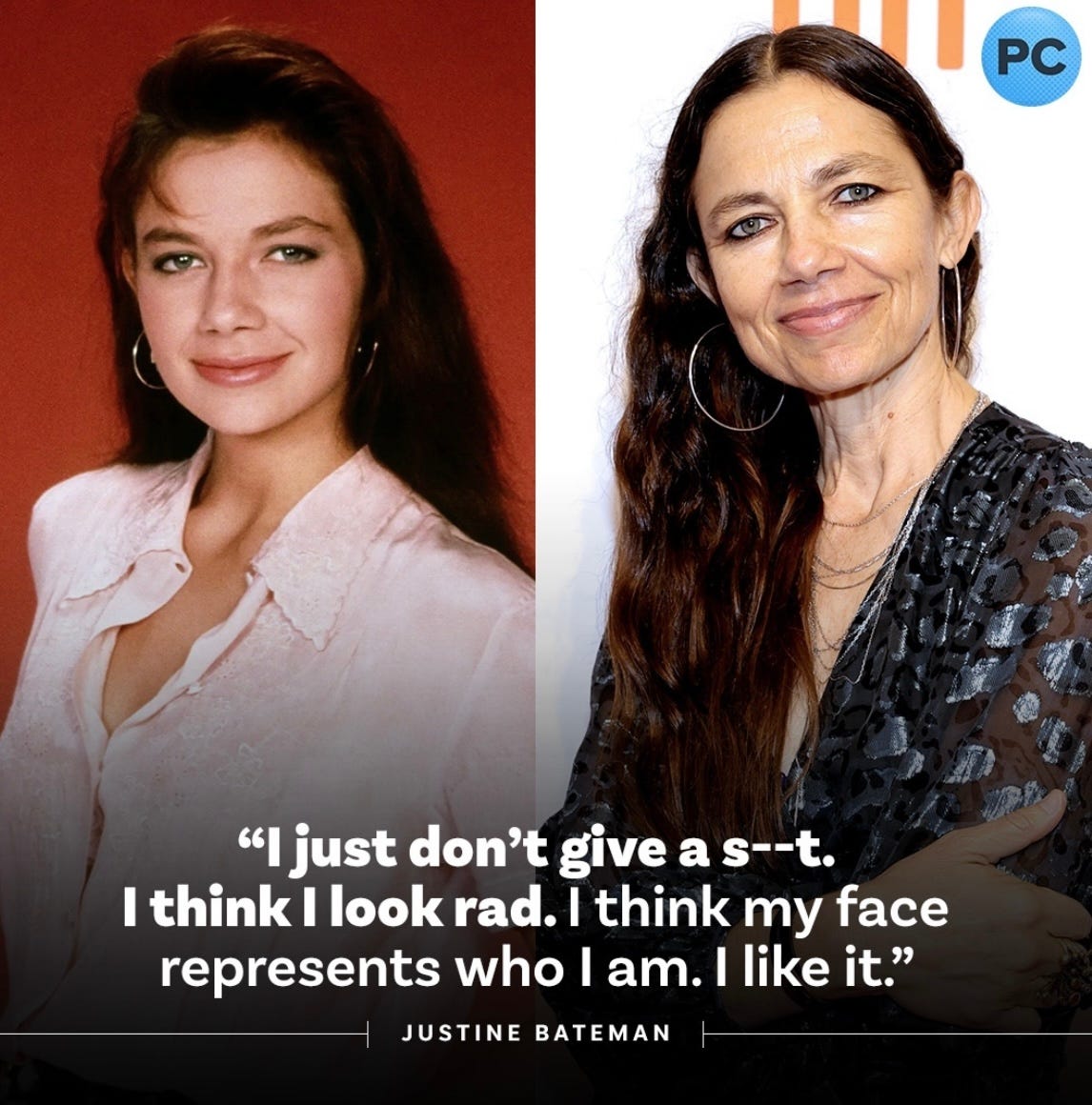
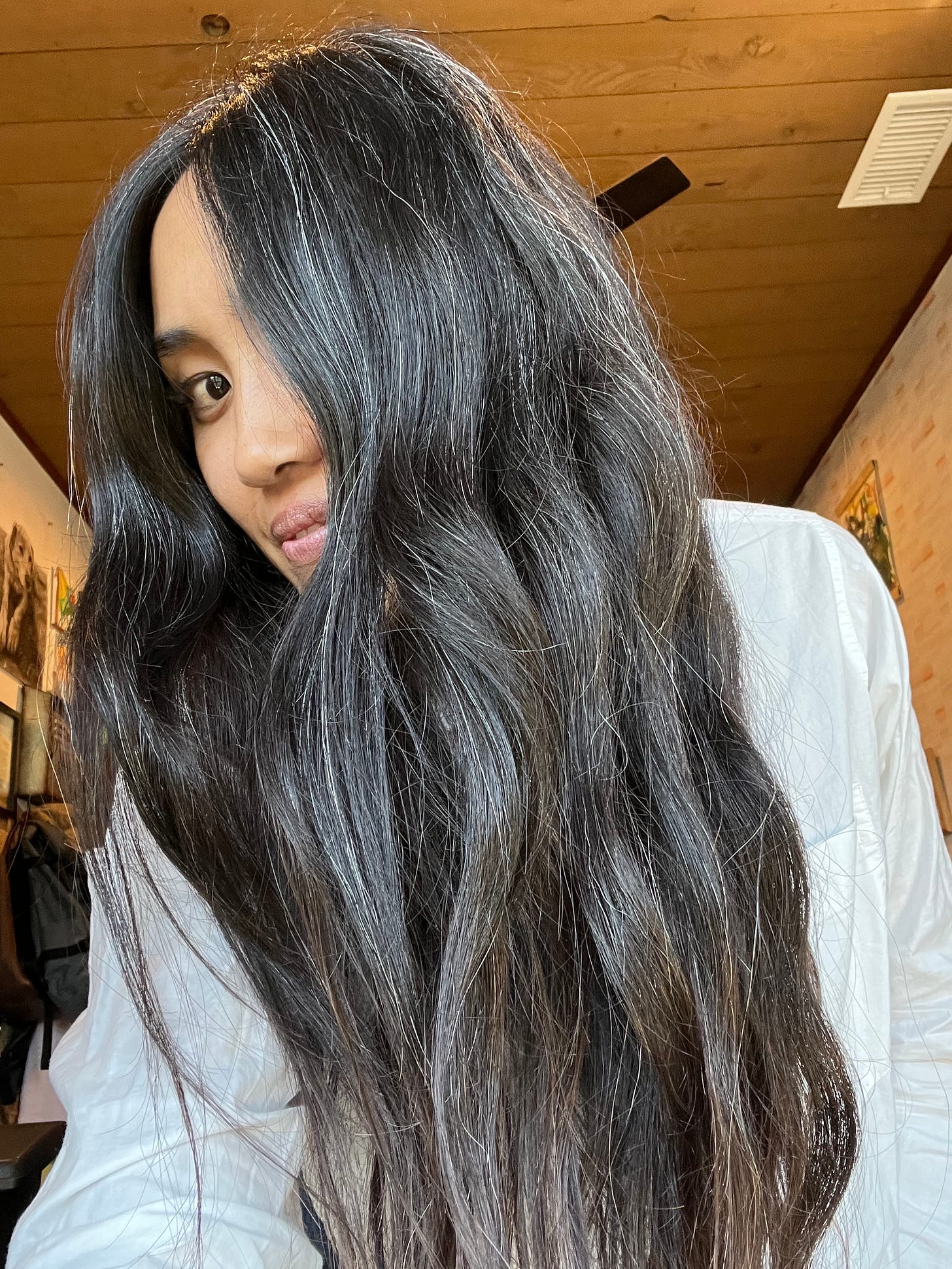
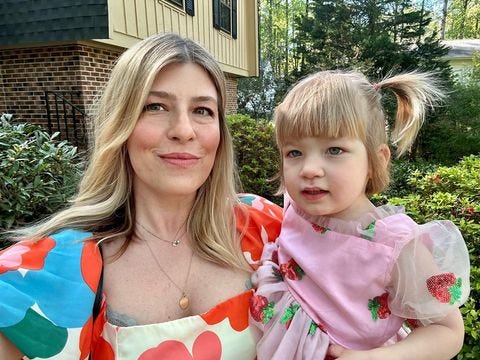
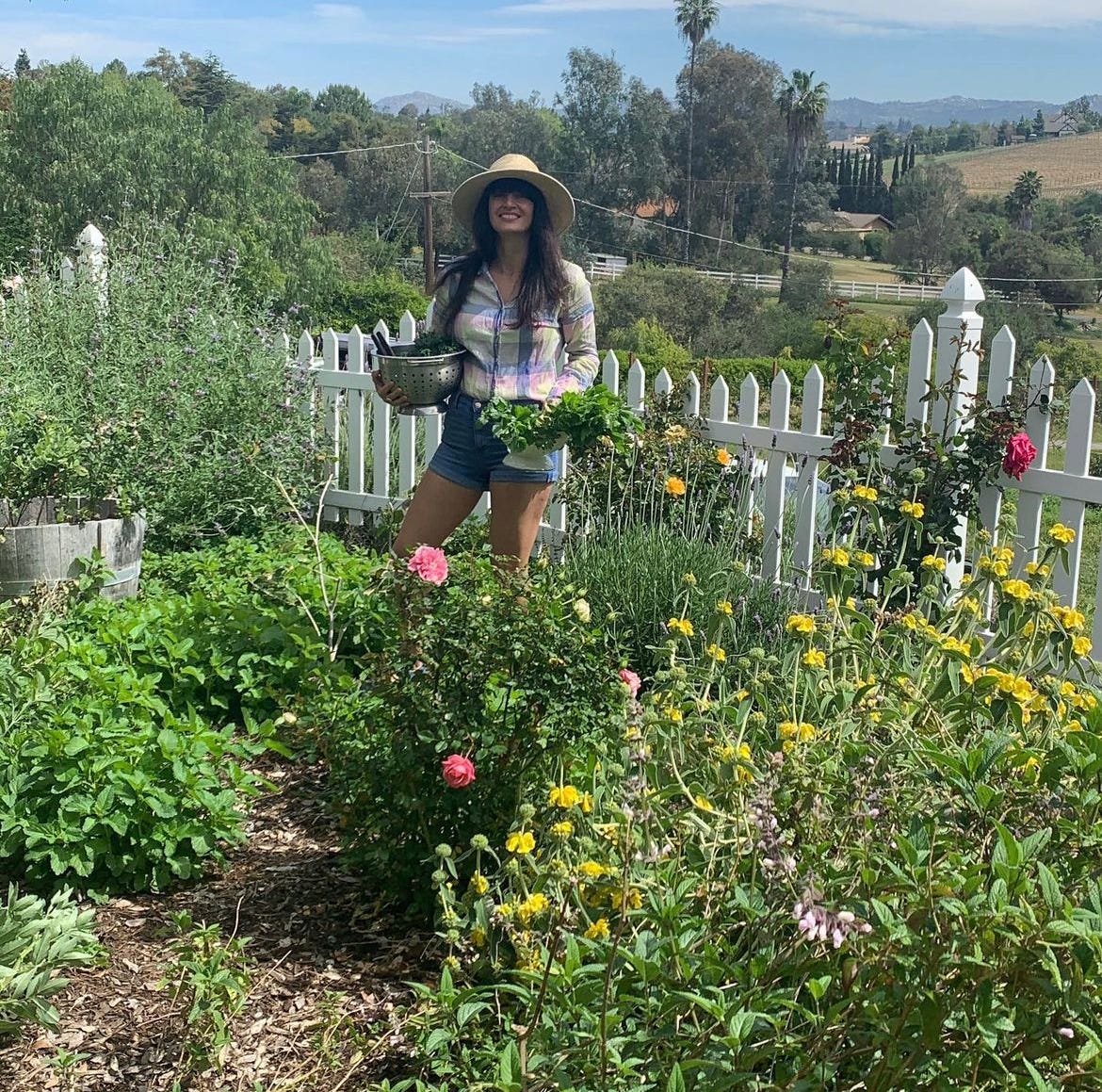
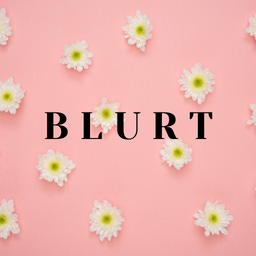
A. You’re going to look great as you age! B. As someone further down the trail than you, I want to encourage you. It’s a privilege to be alive, whatever works is a plus, whatever doesn’t work is still a blessing and invitation to awaken, and each wrinkle is a kiss from the wind and sun.
What makes one beautiful?
A kind heart. Think about it, with someone you know whether they look good or not think of how much more beautiful they become when they have a kind heart. It enhances and adds softness to their eyes and smile. The reason we take care of our mind and body is so that we can remember good times. So that we can hike the trail, hop into that boat. Because it makes us feel better.